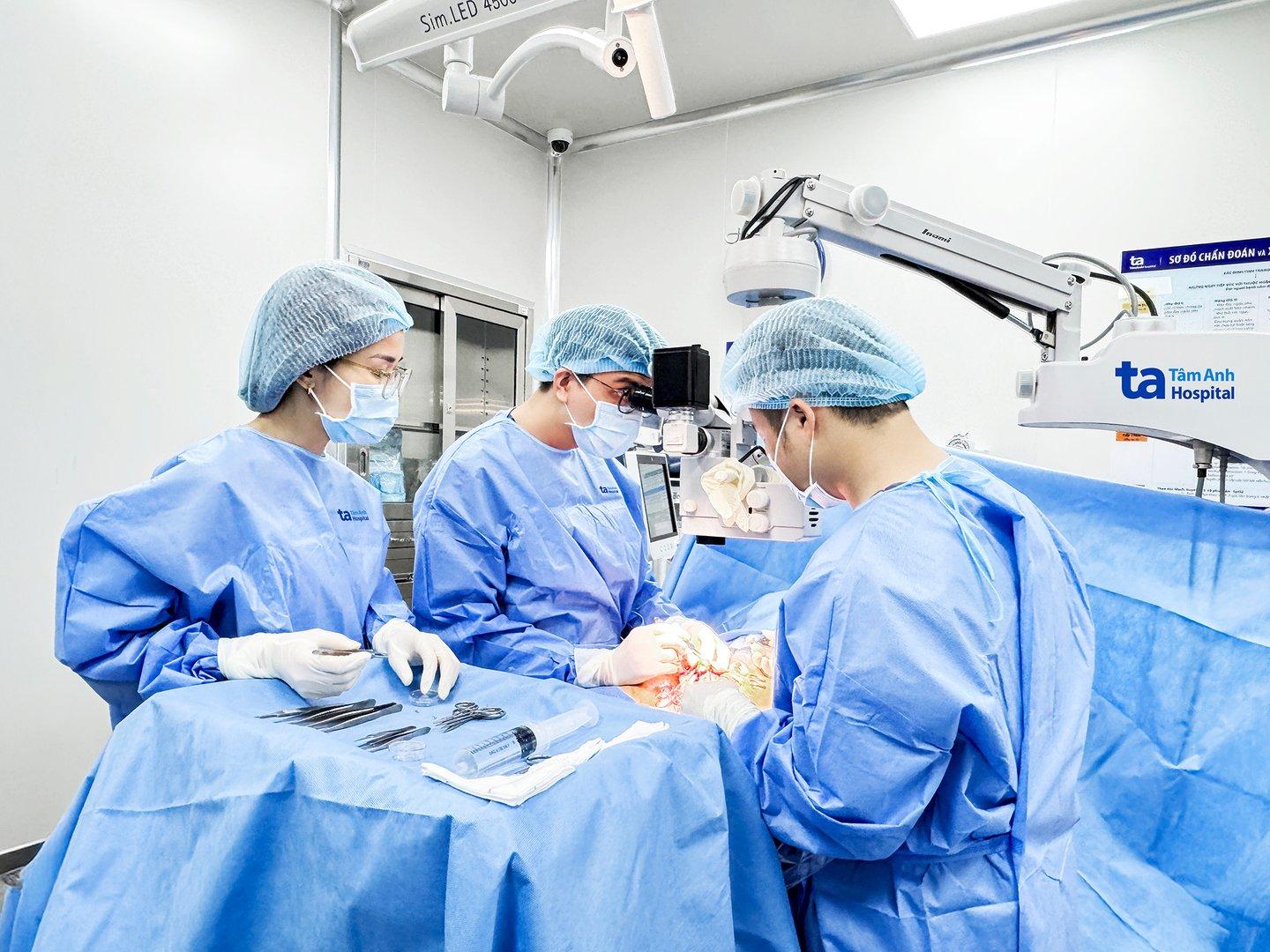"This chromosomal mutation accounts for 1-13% of male infertility cases caused by azoospermia (absence of sperm)", said Dr. Nguyen Quang Vinh from the Andrology Unit of the Fertility Center at Tam Anh General Hospital in Ho Chi Minh City (IVF Tam Anh TP HCM). He added that the cause can be hereditary or due to a spontaneous mutation.
Dr. Vinh explained that in males, the AZF region on the long arm of the Y chromosome is divided into three sub-regions: AZFa, AZFb, and AZFc. Each region contains genes that regulate sperm production. Deletion of the AZFc region is quite common, accounting for 60-80% of azoospermia cases.
In Thai's case, the deletion extended further, resulting in an AZFbc deletion. The greater number of lost genes significantly reduced sperm production, leading to azoospermia. The chances of finding sperm in his testicles were less than 10%.
Thai had previously undergone surgery at another hospital, but no sperm was found, making in vitro fertilization (IVF) impossible. However, the couple didn't want to use donor sperm. At IVF Tam Anh, Dr. Vinh suggested micro-TESE as a last resort to give the patient a chance to have his own biological child. This method has been successfully applied to many infertile men with chromosomal abnormalities.
Using a microscope with 30x magnification, Dr. Vinh and his team identified several potential seminiferous tubules and transferred them to the lab. Embryologists used an inverted microscope with 200x magnification to dissect the tissue and found nearly 30 viable sperm, which were divided into two samples for cryopreservation.
 |
Dr. Nguyen Quang Vinh (center) and the micro-TESE team found sperm for the patient. *Photo: Hoai Thuong* |
Thai's wife had normal reproductive health. After ovarian stimulation, 15 mature, good-quality eggs were retrieved. The embryologists thawed one sperm sample and selected suitable sperm for intracytoplasmic sperm injection (ICSI) into each egg to create embryos. The embryos were cultured in a time-lapse incubator equipped with AI software, resulting in six good-quality day-5 embryos.
To prevent the AZF deletion from being passed on to their child and affecting their fertility, the couple underwent preimplantation genetic testing. The results showed two embryos with genetic abnormalities.
At the end of July, doctors transferred a healthy embryo into Thai's wife's uterus, resulting in a successful pregnancy. With the remaining frozen sperm sample, the couple can have more children in the future. Thai also has varicocele but doesn't require surgery yet. He is being monitored and will receive treatment if necessary.
Dr. Vinh explained that AZF deletions on the Y chromosome in men often progress silently, worsening over time until sperm production ceases completely. Effective diagnostic methods include semen analysis showing azoospermia and genetic testing.
After the age of 35, the chances of retrieving sperm from the testicles are very low. Therefore, after puberty, men should have a reproductive health check-up at least once, ideally annually. If unmarried, men should consider sperm cryopreservation to preserve their fertility. Couples who have been trying to conceive for a year without success should seek comprehensive medical advice for early detection of genetic abnormalities, increasing the chances of successful treatment and having children sooner at a lower cost.
Hoai Thuong
*The patient's name has been changed.












